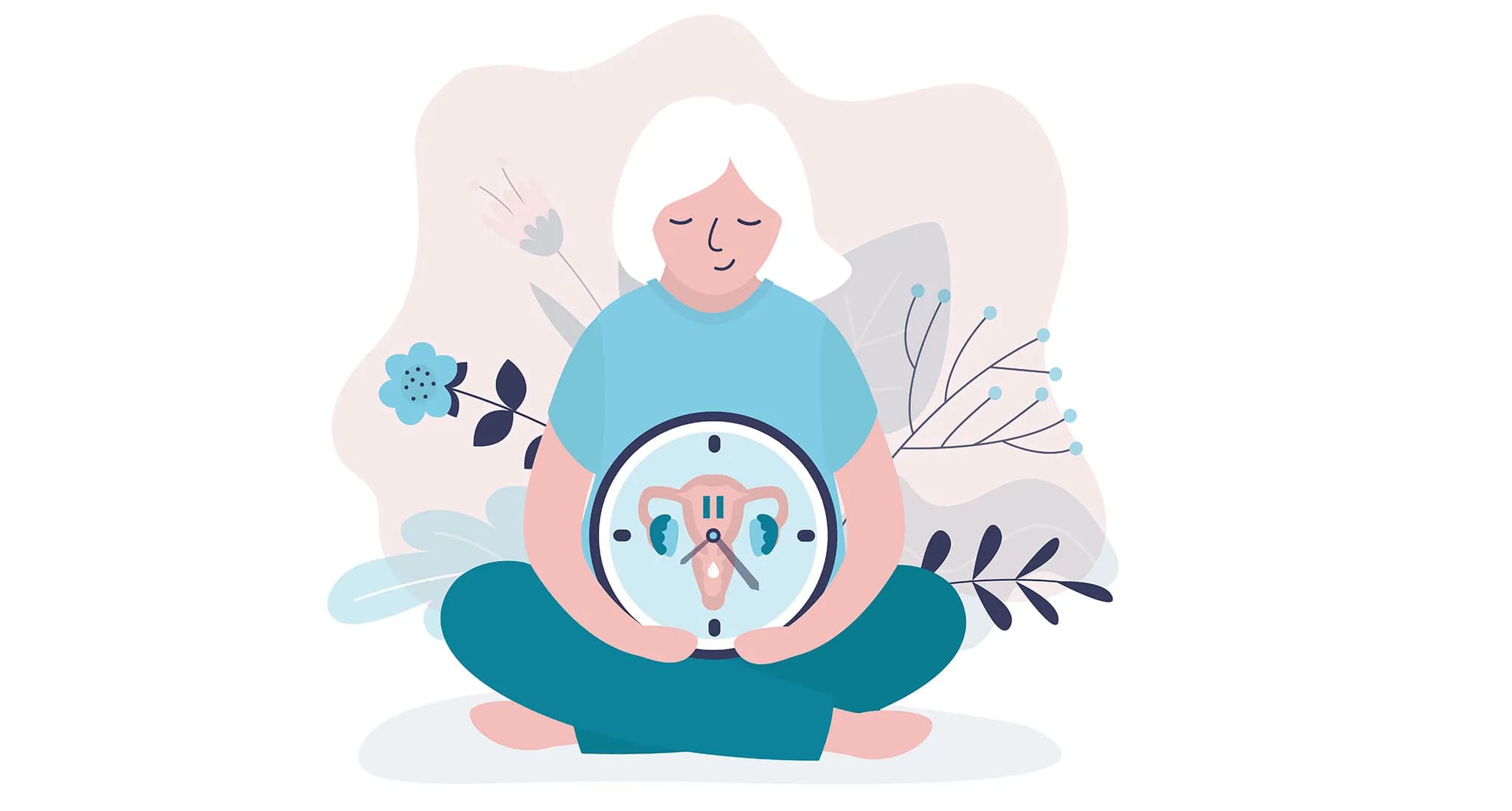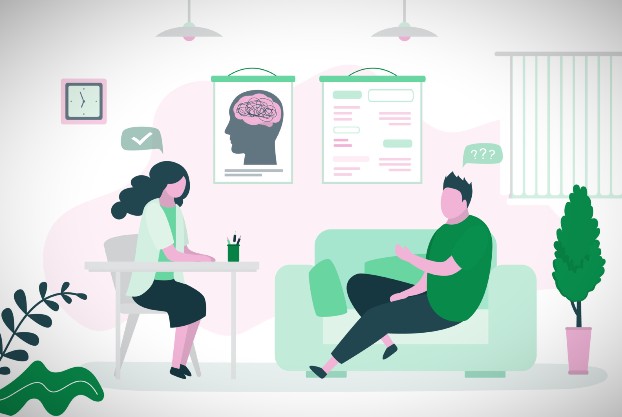
Menopause is a natural transition that all women go through as they age. It marks the end of a woman’s reproductive years and can last anywhere from a few months to several years. Many women have questions about when menopause ends and what they can expect during this time. In this comprehensive guide, we will explore the stages of menopause, symptoms, timeline, and tips for managing this transition smoothly.
What is Menopause?
Menopause refers to the time when a woman’s menstrual cycles permanently stop. It signals the end of fertility. The years leading up to menopause are called perimenopause. This transitional time can last up to 10 years as hormone levels fluctuate erratically.
The average age for menopause in the United States is 51. But it can occur anywhere from 40-58 years of age. Menopause usually happens naturally. But it can also be induced by surgery, chemotherapy, or radiation.
Stages of Menopause
There are three main stages of menopause:
Perimenopause – The first stage when women start experiencing changes leading up to menopause. This can last up to 10 years.
Menopause – Menopause officially begins 12 months after a woman’s last menstrual period. At this point, the ovaries have stopped releasing eggs permanently.
Postmenopause – This stage starts once a woman has gone 12 consecutive months with no period. Hormone levels have stabilized at lower levels.
Many women want to know exactly when does menopause end? The process ends once a woman reaches postmenopause. This is 12 months after the last menstrual cycle. At this point, menopause is considered complete and a woman can no longer get pregnant.
Timeline and Duration
Every woman’s experience is unique, but menopause typically unfolds over several years:
- Perimenopause – Begins several years before menopause. This transitional stage can take anywhere between 2-10 years. Symptoms are mild at first but increase over time.
- Menopause – Defined as 12 months without a menstrual period. Marks the end of fertility. Can last up to 5 years.
- Postmenopause – The stage after 12 months without a period. Hormone levels stabilize and symptoms ease for most women. Considered the end of menopause.
While the process can take over a decade, most women reach postmenopause between the ages of 45-55. The whole menopausal transition ends with postmenopause. This is when hormone levels have fully adjusted to lower levels.
Signs and Symptoms
Women may start to notice subtle changes even 5-10 years before actual menopause sets in. Some early signs of perimenopause include:
- Irregular periods – Changing in frequency, duration, and flow
- Hot flashes
- Trouble sleeping
- Vaginal dryness
- Mood changes – Irritability, anxiety, depression
- Low libido
- Headaches
- Joint pain
- Weight gain
As estrogen levels continue to fluctuate and decline, symptoms typically become more pronounced. During menopause itself, women may experience:
- Missed periods – amenorrhea
- More severe hot flashes and night sweats
- Palpitations
- Fatigue
- Memory issues (“brain fog”)
- Urinary changes – incontinence
- Vaginal thinning and dryness
- Mood swings
- Lack of interest in sex
- Hair loss or thinning
Treatments and Lifestyle Tips
While menopause is irreversible, there are many ways to minimize disruptive symptoms:
Hormone Therapy – Estrogen pills, patches, gels and rings can help relieve hot flashes, night sweats, and urogenital symptoms like vaginal dryness. There are some health risks to consider so discuss options with your doctor.
Vaginal Estrogen – Applying estrogen creams locally can improve vaginal elasticity and lubrication without raising systemic hormone levels.
Prescription Medications – Antidepressants like SSRIs, Gabapentin for hot flashes, or Clonidine for night sweats may help provide relief.
Over-the-Counter Remedies – Dietary supplements like phytoestrogens, black cohosh, and St.John’s Wort may ease symptoms for some women.
Lifestyle Changes – Regular exercise, stress management, hydration, smart food choices, and preventing weight gain can minimize menopause discomfort. Quitting smoking and limiting alcohol helps too.
While menopause marks the end of fertility it can open the door to new beginnings. With a proactive approach, women can move gracefully into the postmenopausal stage of life.
When Does Menopause Officially End?
Many women going through menopause often ask “When does it end?” The menopause transition is considered complete once a woman reaches postmenopause. This stage begins 12 full months after her last menstrual period. At this point the ovaries have stopped releasing eggs and hormone levels even out.
For most women, menopause officially ends between the ages of 45-55 years old. The duration varies widely. Some women finish menopause in just a couple years. For others, fluctuating hormone levels can persist for a decade or longer before reaching postmenopause.
Keep in mind that the onset of menopause signals the end of fertility, not femininity. With the right lifestyle habits and coping strategies, this natural transition can be quite smooth. Take good care of your body and mind and know that there is a light at the end of the menopause tunnel!
Frequently Asked Questions About When Menopause Ends
Menopause can be an unpredictable time full of questions. Here are answers to some frequently asked questions about when menopause ends:
How long does menopause last?
The full menopausal transition can take anywhere from 2-10 years. Most women reach menopause between ages 45-55. It ends 12 months after your last period in postmenopause.
When does perimenopause end?
Perimenopause ends when menopause begins, after 12 months without a menstrual period. Perimenopause can last up to 10 years before menopause.
Do symptoms improve after menopause?
For most women, the most disruptive menopause symptoms ease during postmenopause as hormone levels stabilize. But some symptoms like vaginal dryness or urinary issues may persist.
What if I have a period after menopause?
Occasional light bleeding may occur even years after menopause. But having a full-flow period 12 months after your last one is unlikely. See your doctor to investigate the cause.
Can menopause be reversed?
Menopause is irreversible since the ovaries stop making estrogen permanently. But in very rare cases, a woman might still ovulate and conceive after menopause.
What should I expect in postmenopause?
Postmenopause is the time after menopause ends, with stable hormone levels. Flow is unlikely to return. Most symptoms improve but some such as bone loss continue.
When will hot flashes end after menopause?
Most women get relief from hot flashes within 5 years after their last period. But for some they may persist for more than 10 years as the body adjusts.
Do hormones continue to fluctuate after menopause?
Hormones no longer fluctuate after the ovaries stop releasing eggs in postmenopause. Hormone levels taper off and remain low.
What are the health risks after menopause?
Bone loss, heart disease, and other conditions become more common after menopause due to estrogen decline. Stay proactive with health screenings.
How long will menopause symptoms last?
Symptoms peak around 1-2 years before and after the final period. Most women find relief within 5 years, but duration varies. Stay patient.
Menopause officially ends 12 months after the final menstrual period. But perimenopause can stretch over many years before that. Understanding the stages and timeline provides much needed clarity. While menopause marks the end of fertility it opens the door to new beginnings. Staying healthy, active and positive can help usher in a rewarding postmenopausal life.








